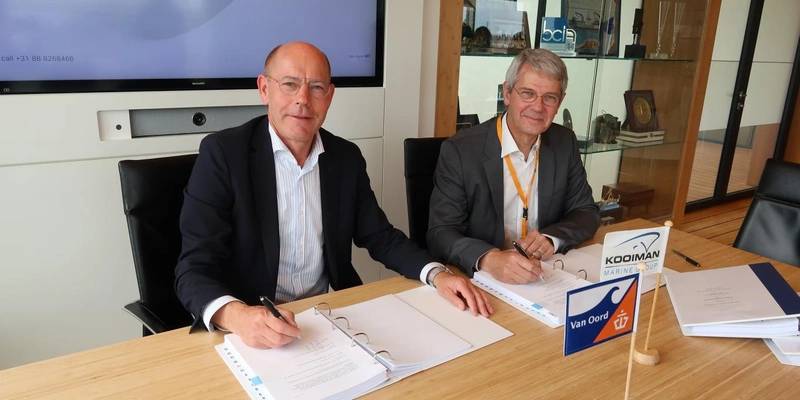Van Oord Orders Two Water Injection Dredgers
Dutch shipbuilder Kooiman Marine Group said it has secured a contract from Dutch dredging and marine services firm Van Oord to build two Water Injection Dredgers (WID) for delivery scheduled in the first half of 2024.
The order follows the previous deliveries of the WIDs Maas and the Mersey delivered in mid-2021.

"The new vessels will have the same specifications, supplemented by innovative optimizations. The first of the two vessels will be commissioned in the first half of 2024," Van Oord said.
“The experience with the first two vessels motivated several changes applying to this subsequent order,” explained Peter Bijkerk, Project Manager on behalf of Van Oord. “The most notable modifications involve a larger accommodation, more battery power and the fendering. These modifications will increase the vessel’s deployability still further.”
In the design of the Maas and the Mersey extensive attention was devoted to optimizing the vessels’ energy consumption and operation, thus reducing CO2 emissions.
The Maas and Mersey were developed by Kooiman Engineering in cooperation with Van Oord. The vessels measure 43.07 x 12.40 meters (length and width including the water injection pipe) and have a draft of 3.4 meters. They will feature heave compensation and dynamic positioning, so that dredging can be largely automated and performed more efficiently, Van Oord said.
According to Van Oord, the vessels offer not only water injection dredging but also mass flow and power jetting systems. Two electrically driven pumps force water through the U-shaped water injection pipe located at the rear of the vessel. This pipe injects water into the bottom, loosening sediment which is carried away by the current. Several water-injection methods are available, giving the vessels optimum deployability, the builder said.
Keeping up with the growing volume of maritime transport requires both port and waterway maintenance. Water injection dredging removes sediment ‘the natural way’. It is an efficient and environmentally friendly way of maintaining the depth of navigation channels, ports and rivers. Thanks to their maneuverability and very limited draught, these vessels are perfectly suited for maintenance dredging in shallow harbors.
The vessels will be equipped with a hybrid energy management system and will be able to store energy in batteries that can be used later for propulsion and other purposes. Diesel-electric engines will reduce carbon emissions. The new water injection vessels will comply with IMO TIER III legislation for reducing harmful NOx emissions and take account of EU STAGE V legislation.
The enlarged battery pack enables the diesel engines in the new dredgers to be utilized optimally, increasing fuel efficiency while reducing emissions and noise. “In fact, the noise levels were already fine,” noted Maarten Kooiman, Project Leader on behalf of Kooiman Marine Group. “During the trial run with the Maas and the Mersey, noise levels in the accommodation and wheelhouse turned out to be so low that we could virtually comply with the highest possible noise requirements of the classification society, despite the fact that this was not a requirement.”
